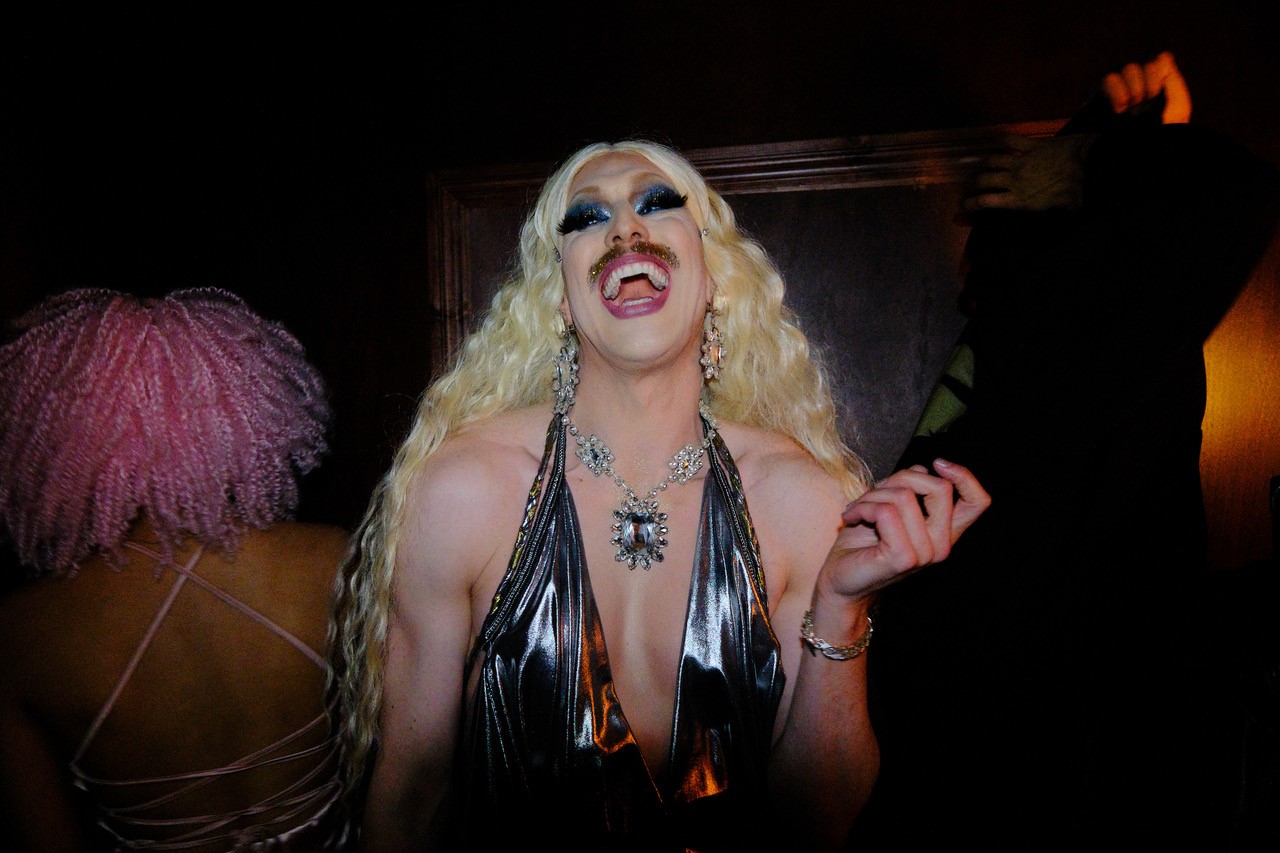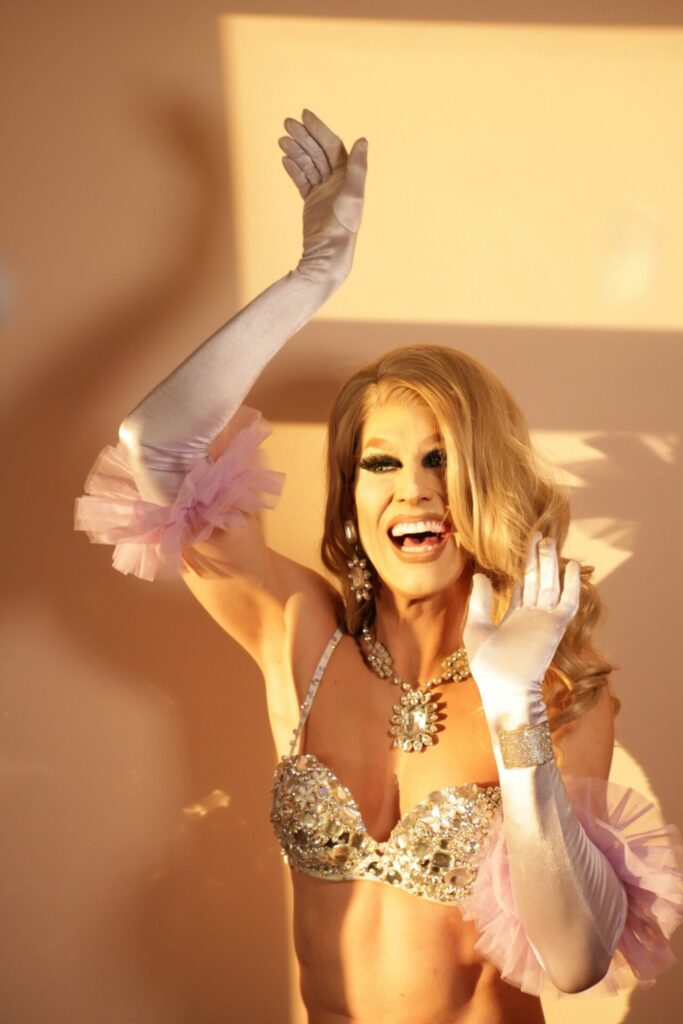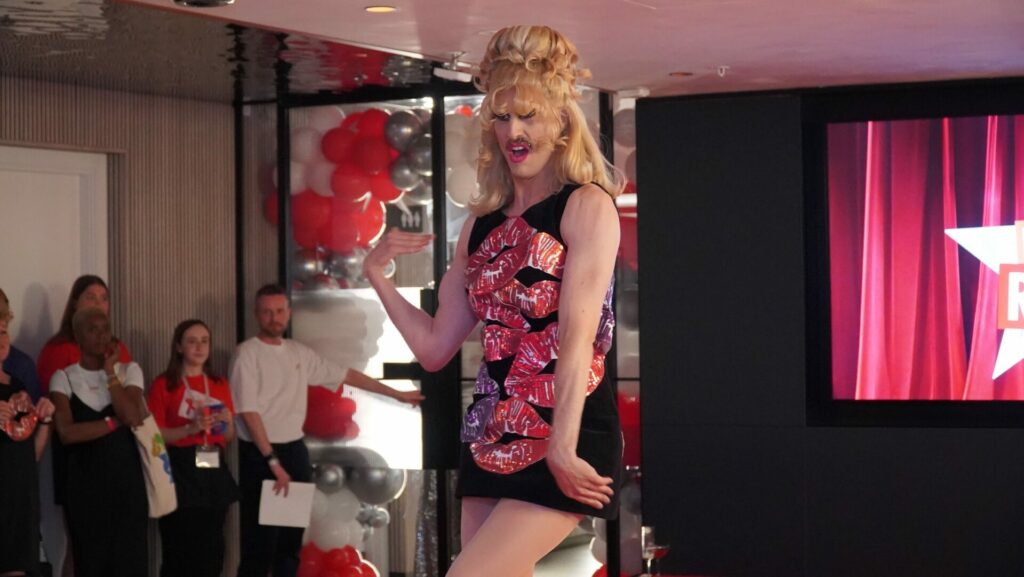Meet the drag queen who turned her HIV diagnosis into an opportunity for activism
To mark World AIDS Day 2024, Attitude chats to Daisy Puller - who tells us she's "thrilled to do my part – a silly goose in a sparkly bra, unbothered and unashamed of my HIV status!"

What was your first reaction after you were diagnosed with HIV?
After my diagnosis, I decided to go home to Australia to tell my family – I called it “delivering the good news” to each family member, one by one. My brother, who’s five years older, was particularly shocked. When I told him, he looked bereft. All the color drained from his face – and considering he’s Australian, he was pretty pale to start with. His first question was, “Are you here to tell me that you’re going to die?”
How did you respond?
I immediately told him, “No, no, no, no, no – have you not been listening to me?” I had just explained U=U (undetectable equals untransmittable) and how modern medication works, but he only seemed to hear those three letters: H, I, and V. He instantly thought of those old tombstones from TV adverts and the Grim Reaper. The branding of HIV at that time was extremely powerful and, unfortunately, rooted in a lot of homophobia and transphobia, which still affects how people view it, over 40 years later.
Was it similar for you when you were first diagnosed?
Yes, absolutely. I call it my “sliding door” moment. The first image that popped into my head was Princess Diana at the Middlesex Hospital with an AIDS patient. I spiralled into thinking, “People are going to look at me, and I’m going to look like I’m dying.” It’s incredible how deeply these old images and fears are embedded in us.

What support helped you through that time?
I was very lucky to get my diagnosis at the Jonathan Mann clinic at Homerton Hospital, which has an incredible integrated peer navigation programme introduced by Dr. Jane Anderson years ago. Peer navigators there provide holistic support – it’s more than just managing an HIV diagnosis. Often, HIV is the last straw for people who are already carrying heavy burdens, so having peer navigators is life-saving.
Why do you think peer support is so important, especially with the roll-out of opt-out HIV testing in hospitals?
For people who are newly diagnosed, it’s crucial to have someone who’s been through the same experience, who can show that they’re healthy, functioning, and OK. Hearing someone say, “I went through this, look – and I’m OK” was life-changing for me, and it can be for others too.
When did you start performing drag?
I actually started drag before my HIV diagnosis – over a decade ago – and began performing around 2016. Nowadays, I get hired to look cute and do nonsense! But the same part of me that enjoys drag is the part that gives me the bravado to talk openly about HIV. My aim is to empower, inspire, and represent people living with HIV, to show up in spaces where others might feel invisible.

Do you still encounter stigma or misunderstanding around HIV?
Yes, even within the queer community, people still need education. Some can be unintentionally cruel or careless with their words. For instance, a friend of mine had a new colleague who made a crass joke about HIV on his first day at work, without knowing anything about my friend’s background or circumstances. It’s like a dagger in the heart every time.
Do you think drag shows help to break down these kinds of barriers?
Yes, absolutely. People who come to drag shows are usually open-minded, ready for whatever unfolds on stage. And if you perform with confidence, guiding them along, they’re willing to join you for the ride – even if it gets bumpy!
Looking back, would you change anything about your diagnosis?
Honestly, no. Even though it was terrifying at the time, I wouldn’t go back. Through my activism, I’ve met incredible people, and I wouldn’t trade that. Drag can be an inward-looking, sometimes superficial art form, but using it as a platform for something bigger than myself – bigger even than my hair! – feels like I’m part of something meaningful.
Tell us about your involvement with National AIDS Trust?
It was a joy to perform at the Drag Raise event that they held this summer. It’s so important to associate people living with HIV with something bold, exciting, and courageous, rather than with fear and stigma. Their work is vital to ensuring everyone living with HIV in the UK can have a healthy, fulfilling life, and they’re aiming to end new HIV transmissions by 2030. I’m thrilled to do my part – a silly goose in a sparkly bra, unbothered and unashamed of my HIV status, and proud to be me.
Follow Daisy on Instagram at @daisypuller.
